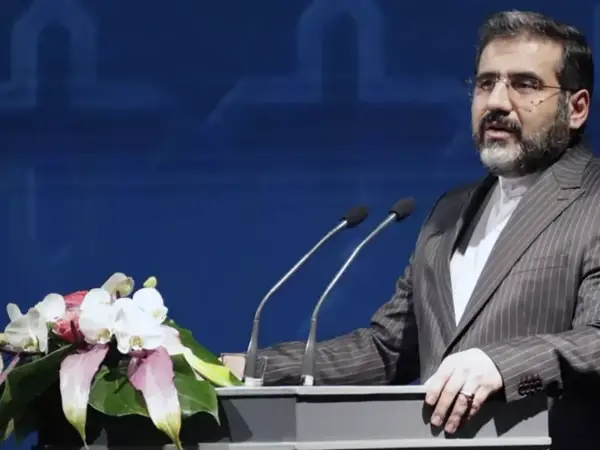Iran's Culture Minister Mohammad Mehdi Esmaili says dissident artists may be allowed to work if they express regret for supporting popular protests.
Relations between the government and Iranian artists have been strained since last September when anti-regime protests began and hurt the official propaganda plans for the anniversary of the Islamic revolution in February.
As musicians, film and theater artists refused to take part in the Fajr Festivals that mark the anniversary, the regime's image was badly damaged particularly in front of the foreign guests the government had invited to Tehran.
Esmaili said that the Culture Ministry can arrange jobs for the artists on the condition that they repent. Some observers have charged that what the Culture Ministry is doing with the artists is like what the government did to political prisoners in the 1980s by forcing them to incriminate themselves and their colleagues.
Esmaili denied that the Ministry has a list of artists who are not allowed to work in Iran because of their support for the protest. However, he acknowledged that the Iranian Judiciary does has such a list.
Tens of Iranian journalists, musicians, as well as film and stage actors were arrested and jailed either for supporting the protesters or for taking part in acts of protest. This included female artists who took off their compulsory hijab in public.
Most of the actors, including the highly prominent actress Katayoun Riahi have been released from jail but judicial cases have been fabricated so that they would fear arrest any moment. The government uses looming jail sentences to keep the artists under control. Some artists including rap singer Toomaj Salehi are still in jail after several months.
Esmaili claimed: "We will do our best to return the repenting artists to the arms of the nation and resume working." However, similar experiences following unrest in the aftermath of the 2009 disputed presidential election showed that artists who bow to the regime would not be welcome by the society.
Esmaili also threatened artists by saying, "Those who are not compliant with the ideals of the Iranian nation will be treated differently." It is obvious that by "the Iranian nation" he meant the regime.
The Trade Union of Iranian Film Artists (The House of Cinema) had announced earlier that some 100 figures are facing restrictions imposed by the government. Many of those artists are barred from travelling abroad. The travel bans have been intensified after Iranian actor and TV celebrities including Hamid Farrokh Nejad, Ehsan Karami and Borzou Arjmand joined the foreign-based opposition after leaving the country.
The government was forced to release actresses under international pressure, as nearly all major film festivals in Europe condemned the arrests. The culture minister said late last year that they can engage in businesses other than acting in the movies, which meant that the actresses are barred from working.
The minister further said that actresses who have removed their hijab have in fact chosen not to obey the laws.
Stage director Qotbeddin Sadeqi told reporters in Tehran that the situation of stage artists is catastrophic. He said, "None of them has a job. The plays that are allowed to go on stage are not popular and most of those who go to theaters are friends and colleagues invited by artists to watch the show for free."
Film Critic Ali Mosleh told Iran International TV that during the protests, the minister used to beg the actresses to return to work, but he is now threatening them as the government believes the protests have ended. He added that none of the protesting artists have retreated from their positions during the past months.
Meanwhile, the head of Iran's state television Payman Jebelli has said that some artists and TV personalities are no longer interested in working with the state television.
